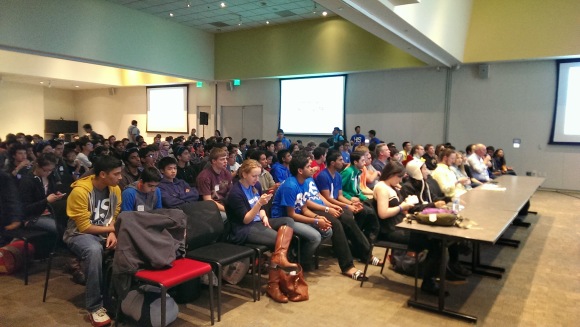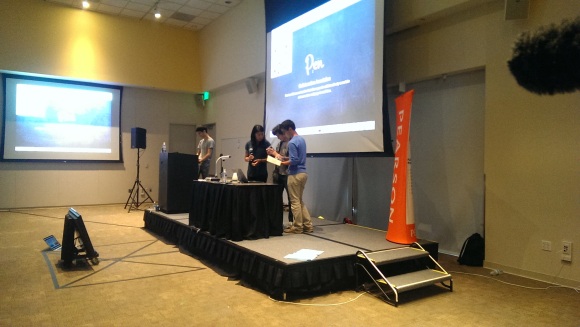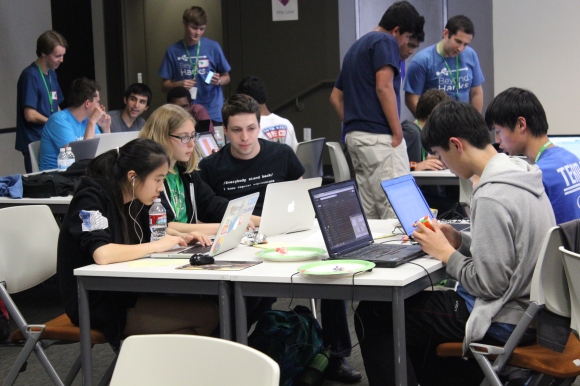
At first glance, the Beyond Hacks event this past weekend at Facebook looks like your typical hackathon. Groups of young hackers chatting and plugging away on projects surrounded by energizing music and pizza. (Lots of pizza.) However, when you take a look behind the scenes, you quickly realize it was a rather unique gathering. The entire event was organized by a group of high-schoolers from East Palo Alto Phoenix Academy as part of their participation in the BeyondZ Program.
BeyondZ, which sprouted from the social innovation efforts of Teach For America, was founded by Aimee Eubanks Davis and is currently piloting programs in Washington DC, New York, LA and the Bay Area. Eubanks Davis shared that her passion for this work comes from a deep motivation to,
“ensure our nation’s next set of leaders can emerge from anywhere.”
She went on to describe the vision behind their programs is to create a “suite of opportunities that a young person needs, beyond traditional academics, to take some of the pressure off of schools to do it all.”
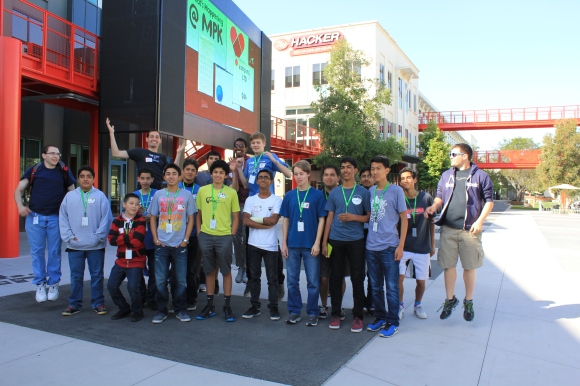
Building more than Apps
The Bay Area program, lead by Miki Heller, focuses on in-depth leadership and coding curriculum. The students develop leadership skills and build their networks through learning how to code their own website, connecting with popular tech companies, and creating a student community that will hear from experts in the industry from across the country.
Organizing the hackathon was the perfect way to combine their new-found passion for coding with developing those leadership and communication skills. When brainstorming possible locations, one of the organizers, Jurgen Arvayo, felt the answer was right in their backyard. “We should do it at Facebook,” suggested Arvayo, who was inspired by his participation in the Facebook Academy program the previous summer.
Under guidance from Heller, as well as Leah Weiser and Aly Mejia, two Beyond Z volunteers from Stanford, the student organizers, Cristian Jiminez, Paulino Lopez and Carlos Garcia, secured the space, contacted local vendors to donate the food and recruited over 50 attendees.
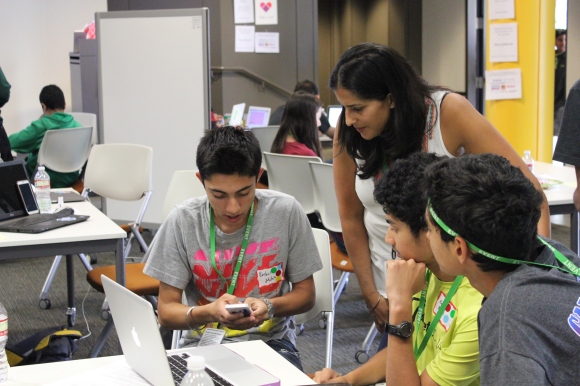
Building Authentic Experiences
I was especially impressed by a trio who made the trek all the way from Fresno. Johnny Tiscareno, Rahul Bekal, and Rushil Mehra won honorable mention for building a snapchat-like website that allows you to take a photo and share it instantly even if you don’t have a smartphone. They had a sense of what to expect having made the similar drive to attend CodeDay in SF this past May.”We don’t have things like this back home. This event has been better since the group is smaller and we actually get more time with the mentors,” shared Mehra. Another female participant echoed similar feelings, saying that,
“the best part of these events is getting into small groups and working on something over a sustained period of time. The fact that we are at Facebook is just a bonus.”
A promising sentiment for schools and libraries that are trying to create a coding culture.
The projects were designed around real-world challenges. The winning team built a fully functioning app that lets you take a photo of a receipt, categorize it, and email it to someone for reimbursement purposes, while second place created a Chrome extension to enhance functionality for School Loop, a website that allows students to track their grades.
